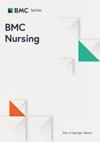护理教育中的数字化学习:从 COVID-19 封锁中汲取的经验教训
IF 3.1
2区 医学
Q1 NURSING
引用次数: 0
摘要
由于 COVID-19 大流行,护理教育必须迅速过渡到电子学习,这对护理教育产生了重大影响,因为护理教育依赖于实践、亲身体验以及护士在医疗保健中发挥的关键作用。护理专业学生需要通过在临床环境中获得的传统经验来实现高水平的临床能力,而电子学习必须复制或补充这些经验。了解护理专业学生在电子学习环境中所面临的独特挑战,对于制定能提高学习效果并有助于改善患者护理的教育策略至关重要。本研究旨在探讨护理专业学生和新晋护士(作为学生)在 COVID-19 封锁期间的电子学习体验,重点关注电子学习如何影响他们的学习和专业发展。这项探索性和描述性研究对 31 名参与者进行了定性访谈,包括全日制护理专业学生、非全日制护理专业学生和新晋护士(作为护理专业学生)。访谈于 2022 年 2 月和 3 月通过 Zoom 在线进行。研究结果表明,整合小组互动和采用策略性教学支持可以提高电子学习的有效性。不过,也发现了一些障碍,如技术困难、心理挑战和社会隔离。了解这些独特的机遇和挑战有助于教育机构优化电子学习策略,确保护理专业学生做好充分准备,在医疗保健领域发挥关键作用。由于 COVID-19 大流行而迅速转向电子学习,带来了技术、心理和社会等方面的挑战,但也带来了重新思考和加强护理教育的机遇。实施适当的电子学习教学策略,如支架式教学和小组学习,可以让护理专业学生更好地为其在医疗保健领域的重要角色做好准备。本研究为数字教育知识体系做出了贡献,并为今后旨在优化护理教育中的电子学习的研究奠定了基础。本文章由计算机程序翻译,如有差异,请以英文原文为准。
Digital learning in nursing education: lessons from the COVID-19 lockdown
The COVID-19 pandemic necessitated a swift transition to e-learning, significantly impacting nursing education due to its reliance on practical, hands-on experiences and the critical role nurses play in healthcare. Nursing students need to achieve high levels of clinical competence through experiences traditionally obtained in clinical settings, which e-learning had to replicate or supplement. Understanding the unique challenges faced by nursing students in e-learning environments is crucial for developing educational strategies that enhance learning outcomes and contribute to improved patient care. This study aimed to explore the experiences of nursing students and newly qualified nurses (as students) with e-learning during the COVID-19 lockdown, focusing on how it influenced their learning and professional development. This exploratory and descriptive study employed qualitative interviews with 31 participants, including full-time nursing students, part-time nursing students, and newly qualified nurses (as nursing students). Conducted online via Zoom during February and March 2022. The findings suggest that integrating small group interactions and employing strategic pedagogical support can enhance e-learning effectiveness. However, barriers such as technological difficulties, psychological challenges, and social isolation were also identified. Understanding these unique opportunities and challenges can help educational institutions optimize e-learning strategies, ensuring nursing students are well-prepared for their crucial roles in healthcare. The rapid shift to e-learning due to the COVID-19 pandemic presented challenges such as technological, psychological and social aspects, but also opportunities to rethink and enhance nursing education delivery. Implementing appropriate pedagogical e-learning strategies, such as scaffolding and small group learning, can better prepare nursing students for their essential roles in healthcare. This study contributes to the body of knowledge on digital education and provides a foundation for future research aimed at optimizing e-learning in nursing education.
求助全文
通过发布文献求助,成功后即可免费获取论文全文。
去求助
来源期刊

BMC Nursing
Nursing-General Nursing
CiteScore
3.90
自引率
6.20%
发文量
317
审稿时长
30 weeks
期刊介绍:
BMC Nursing is an open access, peer-reviewed journal that considers articles on all aspects of nursing research, training, education and practice.
 求助内容:
求助内容: 应助结果提醒方式:
应助结果提醒方式:


